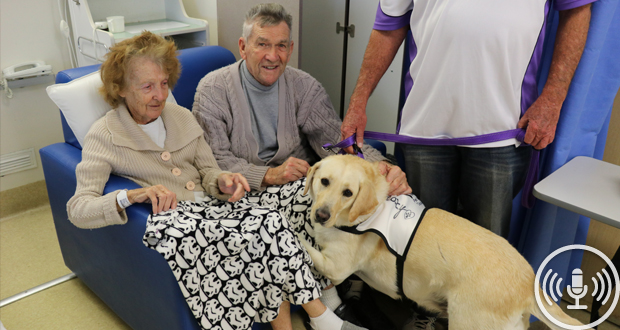Dogs have taken on many roles in society, from security guard to family companion. In the health sector, they've been included in programs known as pet therapy to rehabilitate patients.
Studies reveal the positive effects it has in a hospital setting and that the introduction of animals can bring relief to patients, their families and health professionals.
Other benefits include improvement in areas of anxiety, depression and apathy.
One health service to adopt this method is St George Hospital in southern Sydney, and Nursing Review spoke to Multicultural Health Worker Dona Sakr to find out more about the new program.
Sakr said it stemmed from the hospital's 2015 Diversional therapy program which included weekly pet therapy to cater for those with a range of health and behavioural issues.
The aim was to "make their hospital stay more pleasant and less frightening for them," Sakr said.
She added that many patients missed their pets when entering hospital, and the program helped to ease the distress caused by time spent apart from their companions.
Sakr said the St George region contained many people from diverse backgrounds which brings challenges for staff when communicating with patients, but the activity had proven to be effective with little language or communication skills needed.
Do you have an idea for a story?Email [email protected]
 Aged Care Insite Australia's number one aged care news source
Aged Care Insite Australia's number one aged care news source

